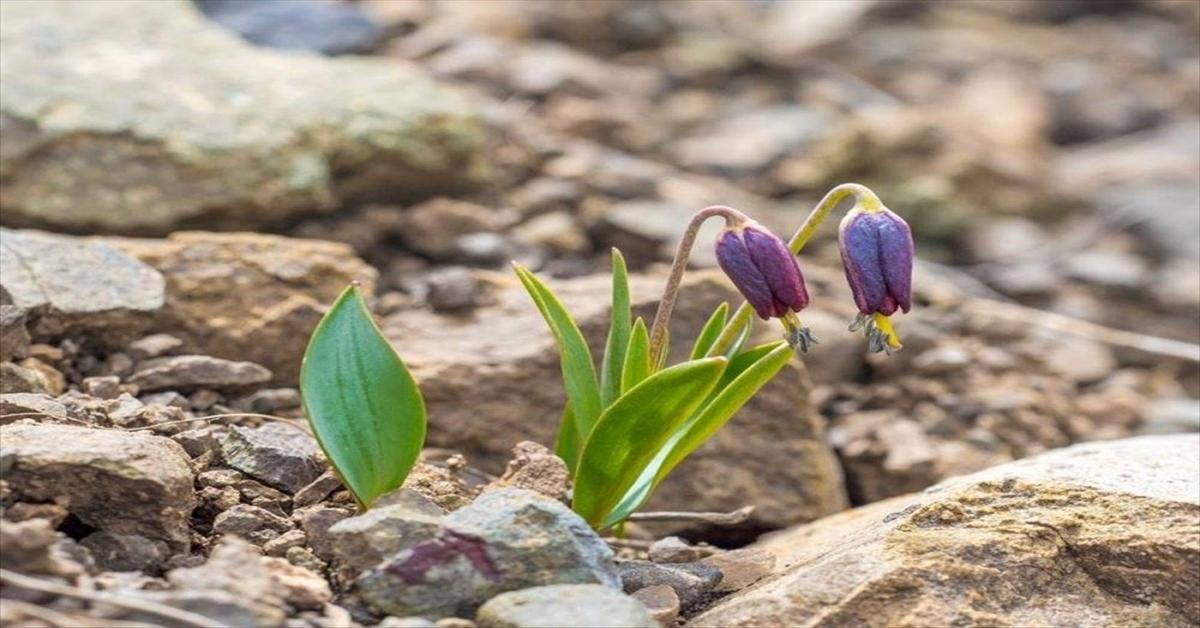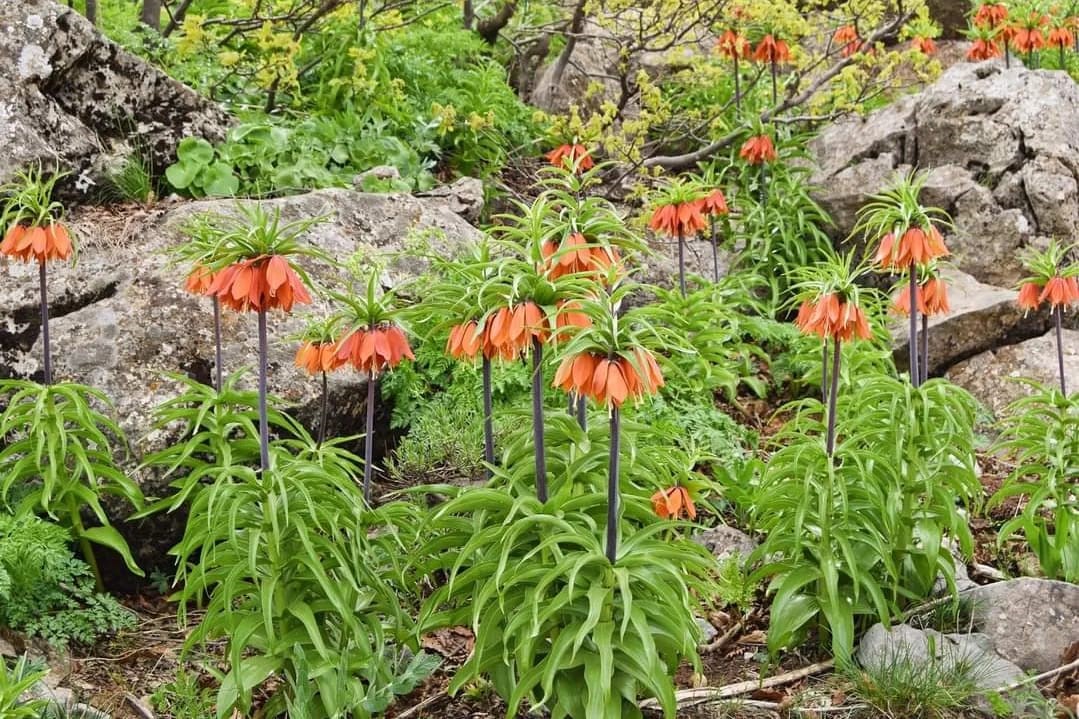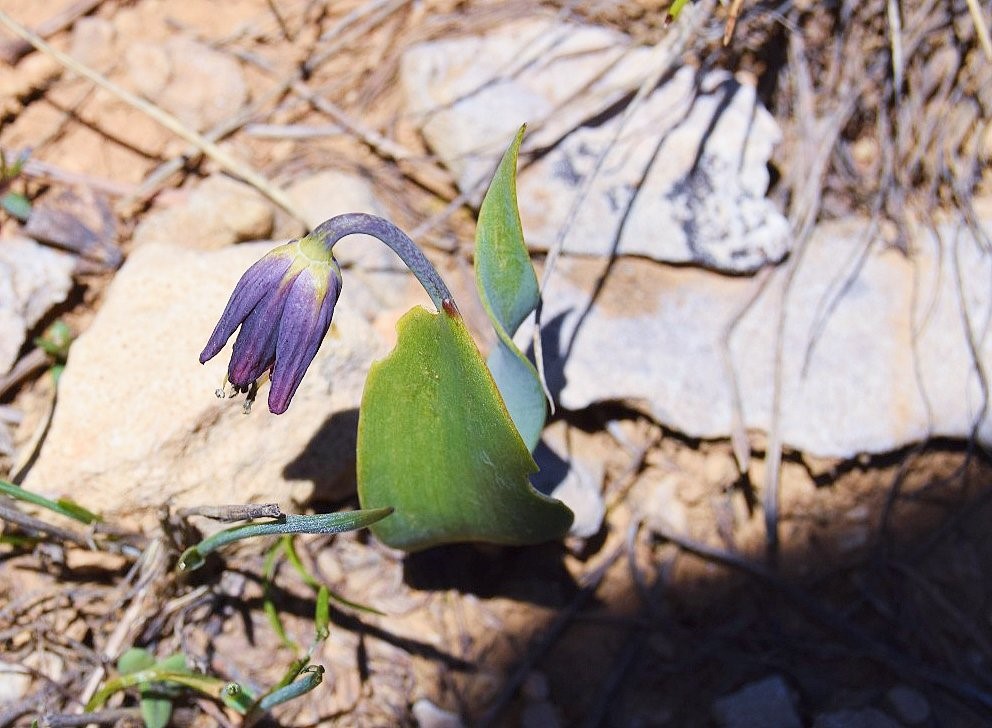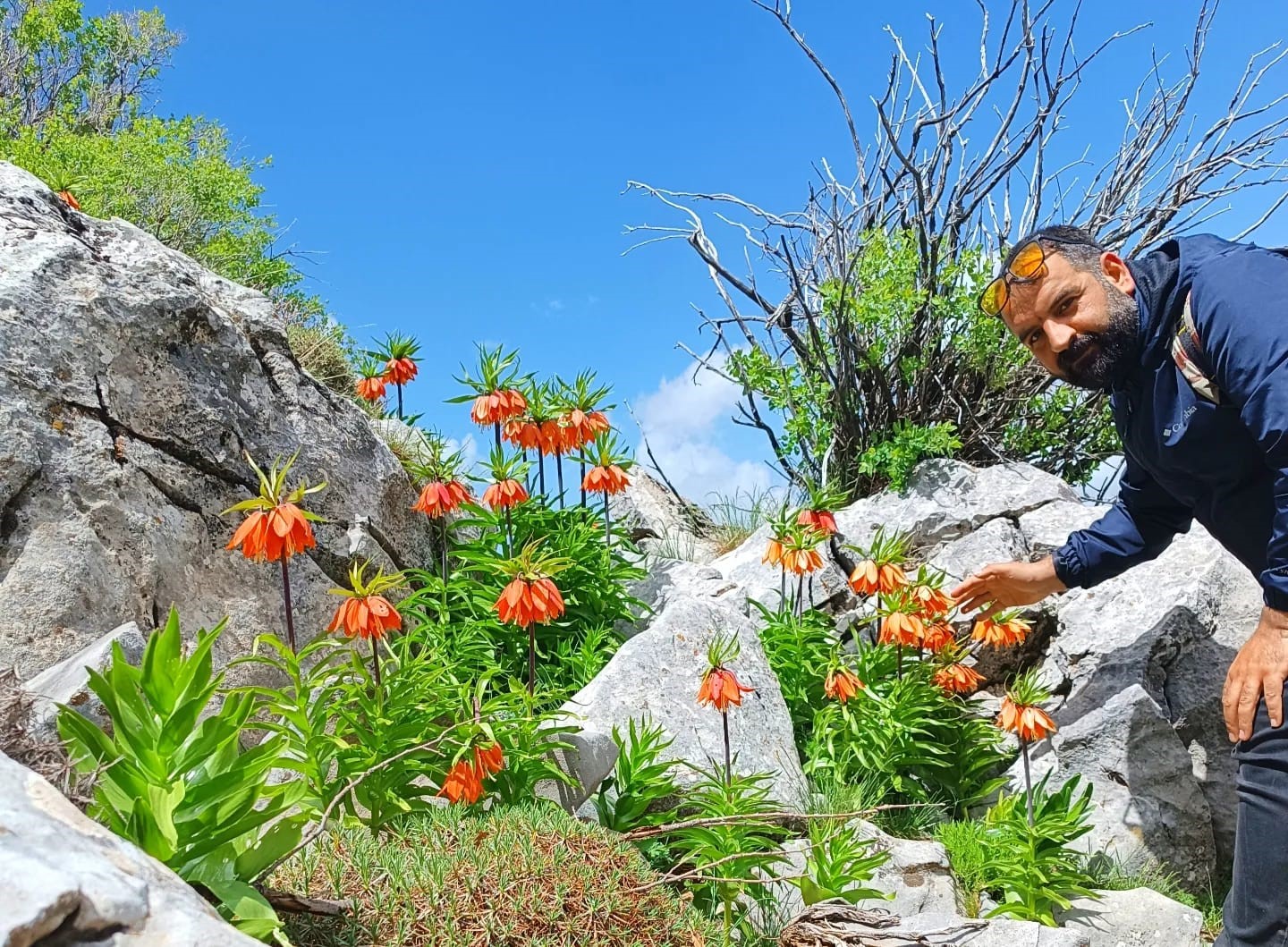
An administrative fine of ₺488,630 ($15,147) will be imposed on those who pluck the endemic species 'reverse tulip' and 'baskilensis' popularly known as 'weeping bride' in Elazig
Reverse tulips, popularly known as the “weeping bride” and “flower of sorrow,” which grow at high altitudes in Türkiye's Eastern and South Eastern Anatolian regions, offer a visual feast with the first spring in the Palu and Aricak districts of Elazig. Reverse tulips, which bloom for a short period of time in the spring, are planted in gardens by people living in high-altitude villages as well as mountainous regions and have been taken under protection of the law to prevent extinction. In addition to Elazig, reverse tulips can be seen in Tunceli, Bingol, Diyarbakir, Adiyaman, Hakkari, Van, Sanliurfa, Sirnak and Mus. Anyone who plucks one of these flowers, which bloom only two weeks a year, will be fined ₺244,115 ($7,500).

In addition, “fritillaria baskilensis,” which was first collected in the Baskil district of Elazig in 1998 and introduced to the scientific world as a new species, grows only in this region. Baskil's purple-colored baskilensis, which is known as the reverse tulip of Baskil has a life span of 2 weeks (see photo below).

The Nature Conservation and National Parks Branch Directorate announced that an additional administrative fine of ₺244,315 ($7,500) for each flower, in total ₺488,230 ($15,000) will be imposed for destroying this biodiversity.

Aygun Cam, who photographed both flowers, said, “This year, as every year, we managed to photograph our endemic species in the Elazig geography. In the east of the city, especially in the Palu, Arıcak and Alacakaya regions, we photographed 'reverse tulips' at mountain summits, or ‘crying brides’ in Anatolian terms. Again on the west side of the city, we photographed a 'purple reverse tulip' called 'baskilensis,' which is found especially in the Baskil district. Baskilensis, which in the world, grows only in the Baskil district of Elazig, has a very short life span, it lives for approximately week. We managed to capture images of these very special and endemic species. There are also protection policies for these species by the National Parks. Plucking or transporting it in any way involves very big penalties. The Province of Elazig is a very rich region in terms of geographical endemic species.”
Source: Newsroom